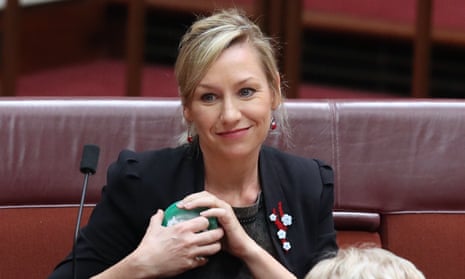Taxpayers would save $350m if the government abolished perks giving retired politicians six-figure pensions for life, new analysis shows.
Retired politicians elected prior to 2004 enjoy access to a hugely lucrative pension scheme, which pays well above $100,000 annually for life or a large lump sum.
The rules have since changed, but about 482 politicians and spouses remain on the generous scheme, and almost half of the 21 MPs retiring in the current election will also be eligible.
The Greens asked the Parliamentary Budget Office to cost their policy of ending access to the pre-2004 scheme, and instead giving retired MPs only the benefits available under the current, less lucrative scheme.
The costings show such a change would save $90m over the forward estimates, cutting expenses by $146m but decreasing taxation revenue by $56m. It would save roughly $350m over 11 years, according to the PBO analysis.
The Greens senator Larissa Waters, the party’s democracy spokeswoman, said it was time for MPs to get their “snouts out of the trough”.
“Nobody else keeps getting paid once they finish a job and it’s an insult to all workers whose wages have flatlined for this free money to be doled out to ex-pollies,” she told Guardian Australia.
“Politicians raking in $350-mil over the next 11 years in bloated pensions after they retire from the job is why ordinary people think politicians are out of touch and motivated by self-interest.
“That $350-mil could pay for domestic violence survivor grants. It could fund a federal anti-corruption body. It could be a downpayment on increasing Newstart, which is decades overdue.”
The pre-2004 scheme entitles MPs to a lifetime pension or a lump sum, depending on their length of service. The least they can get in their pension is 50% of the parliamentary allowance, if they’ve served at least eight years in parliament.
Each additional year of parliamentary service gives them an additional 2.5% on top. Those who have spent more than 18 years in parliament get 75% of the parliamentary allowance. MPs receive additional amounts if they served as a minister or officeholder.
The more generous scheme has since been closed off to politicians elected after 2004. But 28 members of the current parliament, including 10 who are retiring this election, are still eligible.
The Greens policy is to make sure all retired MPs, including those who were elected before 2004, are entitled only to the benefits of the current scheme, which pays 15.4% of their salary into a nominated super fund.
“Only when parliaments put the interests of the community and planet ahead of their own profits and those of their corporate donors will we see democracy working as it should,” Waters said.
The PBO’s costing noted that it hadn’t assessed whether the policy was actually feasible, particularly whether it would contravene constitutional prohibitions on the unjust acquisition of property.
